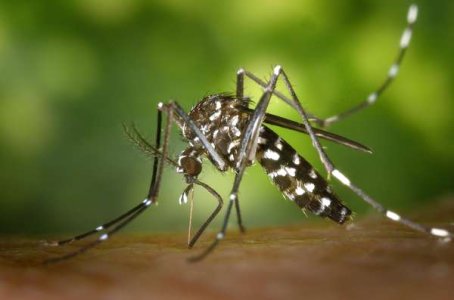‘Terrifying’ flesh-eating disease sounds the alarm in one Aussie state
By
Danielle F.
- Replies 6
Disclaimer: This article contains depictions of lost body parts. Reader discretion is advised.
Living on the coast has always been a tranquil dream for many.
However, the said tranquillity has been disrupted by an alarming health alert that has emerged from the picturesque shores of Australia.
Health authorities warned Batemans Bay locals and visitors alike to be vigilant as it became a focal point of a concerning outbreak.
The Buruli ulcer, a flesh-eating disease, has been detected in two individuals in Batemans Bay, NSW.
The disease, caused by the Mycobacterium ulcerans bacterium, releases a toxin that could gradually destroy the skin and underlying tissues.
The incubation period of the Buruli ulcer could extend up to five months, making early detection and intervention challenging.
In 2020, a 94-year-old man from the area lost a finger to the ulcer after injuring his left ring finger.
The wound then deteriorated, which led to the discovery of the Buruli ulcer underlying the man’s skin.
The cases in Batemans Bay have been linked to the larger outbreaks in Victoria.
The state above saw over 350 cases of the disease this year.
The transmission of this disease is believed to be facilitated by mosquitoes that have fed on infected possums, creating a bridge between wildlife and humans.
Another case involved a 71-year-old man who developed an ulcer from a mosquito bite.
Despite a course of antibiotics, the ulcer persisted, which required a biopsy for an accurate diagnosis.
While the Buruli ulcer may be treated with strong antibiotics and proper wound care, early detection is crucial.
Recent studies found the Buruli ulcer bacteria in possum droppings.
These findings reinforced the theory of transmission from possums to humans via mosquito bites.
This discovery showed significant implications for public health, as the similarities in wildlife populations between coastal Victoria and areas like Batemans Bay suggested a potential for the disease to spread further.
This prospect is particularly concerning for densely populated areas such as Sydney, where the spread of the disease could have far-reaching consequences.
Those residing or planning to visit coastal NSW during the holidays should take preventive measures against mosquito bites.
Use insect repellent, wear protective clothing, and make sure that your area is free from any stagnant water.
If you notice any unusual skin lesions or persistent ulcers, immediately go to a doctor or a nearby hospital.

Have you noticed an increase in mosquito activity in your area? Have you or someone you know been affected by the Buruli ulcer? We would love to hear your thoughts and experiences regarding this concern in the comments section below.
Living on the coast has always been a tranquil dream for many.
However, the said tranquillity has been disrupted by an alarming health alert that has emerged from the picturesque shores of Australia.
Health authorities warned Batemans Bay locals and visitors alike to be vigilant as it became a focal point of a concerning outbreak.
The Buruli ulcer, a flesh-eating disease, has been detected in two individuals in Batemans Bay, NSW.
The disease, caused by the Mycobacterium ulcerans bacterium, releases a toxin that could gradually destroy the skin and underlying tissues.
The incubation period of the Buruli ulcer could extend up to five months, making early detection and intervention challenging.
In 2020, a 94-year-old man from the area lost a finger to the ulcer after injuring his left ring finger.
The wound then deteriorated, which led to the discovery of the Buruli ulcer underlying the man’s skin.
The cases in Batemans Bay have been linked to the larger outbreaks in Victoria.
The state above saw over 350 cases of the disease this year.
The transmission of this disease is believed to be facilitated by mosquitoes that have fed on infected possums, creating a bridge between wildlife and humans.
Another case involved a 71-year-old man who developed an ulcer from a mosquito bite.
Despite a course of antibiotics, the ulcer persisted, which required a biopsy for an accurate diagnosis.
While the Buruli ulcer may be treated with strong antibiotics and proper wound care, early detection is crucial.
Recent studies found the Buruli ulcer bacteria in possum droppings.
These findings reinforced the theory of transmission from possums to humans via mosquito bites.
This discovery showed significant implications for public health, as the similarities in wildlife populations between coastal Victoria and areas like Batemans Bay suggested a potential for the disease to spread further.
This prospect is particularly concerning for densely populated areas such as Sydney, where the spread of the disease could have far-reaching consequences.
Those residing or planning to visit coastal NSW during the holidays should take preventive measures against mosquito bites.
Use insect repellent, wear protective clothing, and make sure that your area is free from any stagnant water.
If you notice any unusual skin lesions or persistent ulcers, immediately go to a doctor or a nearby hospital.
Key Takeaways
- Two cases of Buruli ulcer, a flesh-eating disease, have been detected in Batemans Bay, NSW.
- The disease is spread by mosquitoes and possibly possums, with a significant risk of it spreading to areas along the coast.
- The state of Victoria detected over 350 cases of the Buruli ulcer this year, which caused more concern.
- A 94-year-old man previously lost a finger due to the disease.








